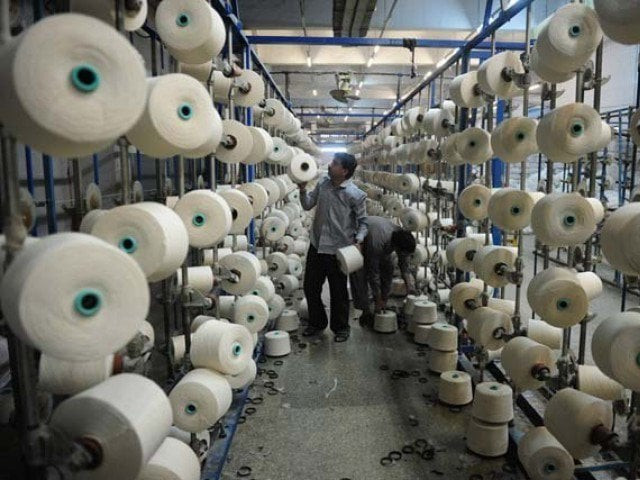Unable to compete: Over 30% of manufacturing capacity standing idle
Textile industry asks government to provide incentives, cut input costs

Commenting on recent trade figures in a statement on Tuesday, Pakistan Textile Exporters Association (PTEA) Chairman Ajmal Farooq and Vice Chairman Muhammad Naeem expressed concern over the growing trade gap and shrinking exports.
They said Pakistan’s exports fell 3.93% to $8.18 billion from July to November 2016, down $334.68 million compared to the corresponding period of previous year.
On the other hand, imports grew 8.7% to almost $20 billion in the July-November period. The import bill stood $1.6-billion higher than the previous year.
They cited high cost of production and failure to compete in the world market as major hurdles in the way of export growth and if factors causing the industrial crisis were not addressed, the situation may aggravate in coming months.
The drop in exports would have dire impact on the economy which was already under pressure, they said.
In order to rescue the ailing textile industry, the prime minister had promised a relief package as the industry had lagged behind in the region, but even after a delay of months, it was still waiting for the relief.
Lack of a serious attitude of the policymakers was badly hitting the economy, they remarked. Farooq was of the view that the textile industry was facing a crisis-like situation because the cost of doing business was much higher than regional competitors.
“Over 30% of the manufacturing capacity is lying idle and production has gone down on account of lack of competitiveness,” he said.
“We are losing our share in global trade whereas competing countries like Bangladesh, India, China and Vietnam are rapidly multiplying their exports just because of the edge they have in the cost of doing business and other incentives offered by their governments.”
Farooq suggested that the government needed to frame pragmatic policies in consultation with the stakeholders in order to bring down the business cost by fixing input prices in line with competing countries, which would provide a level playing field.
Published in The Express Tribune, December 28th, 2016.
Like Business on Facebook, follow @TribuneBiz on Twitter to stay informed and join in the conversation.



















COMMENTS
Comments are moderated and generally will be posted if they are on-topic and not abusive.
For more information, please see our Comments FAQ